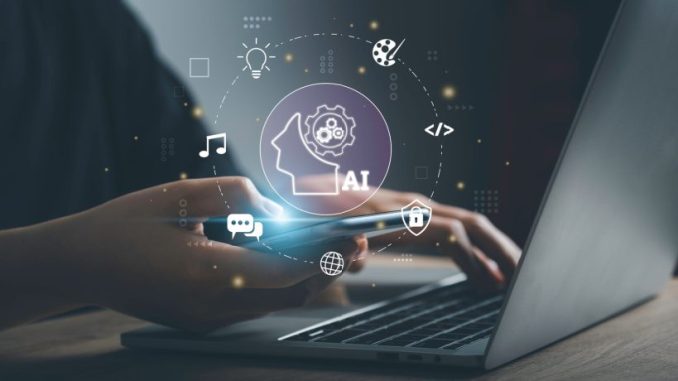
Introduction: Data-Driven Education and Personalization
In today’s rapidly evolving digital landscape, education is undergoing a profound transformation. Traditional methods of teaching and learning are being challenged by innovative approaches that harness the power of data-driven technology to personalize the educational experience for students. This exciting shift towards personalized learning aims to tailor instruction to meet the unique needs and preferences of each individual learner.
With advancements in artificial intelligence (AI) and big data analytics, educators now have access to an unprecedented wealth of information about their students’ strengths, weaknesses, learning styles, and progress. This valuable data can be leveraged to create customized learning pathways that optimize engagement, foster mastery of subjects, and facilitate meaningful educational outcomes.
From pre-assessment data gathering to adaptive real-time feedback mechanisms, this article will explore how AI-driven personalization is reshaping education as we know it. We will delve into various strategies and tools that empower educators with actionable insights derived from student data. Join us on this enlightening journey as we uncover the immense potential of data-driven education in propelling learner success!
Using AI for Personalized Learning
Using AI for Personalized Learning
Artificial Intelligence (AI) has emerged as a powerful tool in the field of education, revolutionizing the way we approach personalized learning. By harnessing the capabilities of AI, educators can now tailor instruction to meet the unique needs and preferences of individual learners.
One key advantage of using AI for personalized learning is its ability to gather and analyze vast amounts of data. Through machine learning algorithms, AI systems can track student progress, identify areas where they may be struggling, and provide targeted interventions or recommendations.
Moreover, AI can adapt content delivery based on each student’s learning style and pace. By employing adaptive algorithms, AI-powered platforms can present information in a format that suits an individual learner’s preferences – whether it be visual aids, interactive simulations, or audio-based lessons.
Additionally, AI enables continuous assessment by collecting real-time data on students’ performance. This allows educators to monitor progress instantaneously and make timely adjustments to optimize their teaching strategies.
Furthermore, with natural language processing capabilities, AI systems can engage in conversational interactions with students. This facilitates personalized feedback and guidance that fosters deeper understanding and engagement.
Ways AI Can Be Utilized to Personalize Education
AI, or Artificial Intelligence, has emerged as a powerful tool in the education sector. With its ability to analyze vast amounts of data and make predictions based on patterns, AI can greatly enhance personalized learning experiences for students.
One way AI can be utilized is through adaptive learning platforms. These platforms use algorithms to gather data on each student’s strengths and weaknesses, allowing them to receive customized instruction that targets their specific needs. By adapting content and pacing in real-time, AI enables students to learn at their own pace and ensures they grasp concepts before moving on.
Another way AI can personalize education is by providing intelligent tutoring systems. These systems act as virtual tutors, offering personalized feedback and guidance based on a student’s unique learning style. Through machine learning algorithms, these systems continuously adapt and improve their recommendations over time.
Furthermore, AI-powered tools can automate administrative tasks such as grading assignments or creating lesson plans. This saves teachers valuable time that they can then invest in individualizing instruction for their students.
Leveraging the power of AI allows educators to provide tailored learning experiences that meet the needs of each student. By utilizing adaptive learning platforms, intelligent tutoring systems, and automating administrative tasks through AI-powered tools; education becomes more personalized than ever before.
How Data-Driven Personalized Learning is Propelling the Learning Industry Forward
Data-driven personalized learning is revolutionizing the education industry, propelling it forward into a new era of innovation and effectiveness. By harnessing the power of data analytics and artificial intelligence (AI), educators can now tailor teaching methods to meet individual student needs, ultimately enhancing learning outcomes.
One way in which data-driven personalized learning is transforming the industry is through adaptive learning platforms. These platforms utilize real-time data to dynamically adjust instruction based on students’ strengths, weaknesses, and progress. This enables teachers to provide targeted support and interventions that address specific areas of improvement for each student.
Furthermore, big data analytics plays a crucial role in personalizing education. By analyzing vast amounts of data collected from various sources such as assessments, attendance records, and behavior patterns, educators gain valuable insights into students’ learning preferences and challenges. Armed with this information, they can create customized lesson plans that cater to each student’s unique needs.
In addition to these advancements in technology, there has been a shift towards microlearning content in personalized education. Microlearning involves delivering bite-sized pieces of content that are easily digestible by students. This approach allows learners to focus on specific skills or concepts at their own pace while receiving instant feedback and reinforcement.
The integration of data-driven personalized learning techniques within schools and colleges has opened up new avenues for improving educational practices across all levels. Whether it’s identifying struggling students early on through pre-assessment data or differentiating instruction based on formative assessment results, educators have more tools than ever before to ensure every learner receives the support they require.
By embracing a blended learning model that combines both traditional classroom instruction with online resources driven by real-time data analysis, institutions can create an environment where every student’s unique strengths are maximized while addressing their individual weaknesses effectively.
As we continue down this path of utilizing data-driven approaches in education, it is essential for institutions to implement robust systems for collecting relevant information about student performance during summative assessments as well. This data can provide valuable insights into overall learning progress and inform future instructional strategies.
In conclusion, data-driven personalized learning is transforming the education industry by providing educators with valuable insights into student performance, enabling them to tailor instruction to meet individual needs. As this approach becomes more prevalent, we can expect to see significant improvements in learning outcomes and a more efficient education system overall.